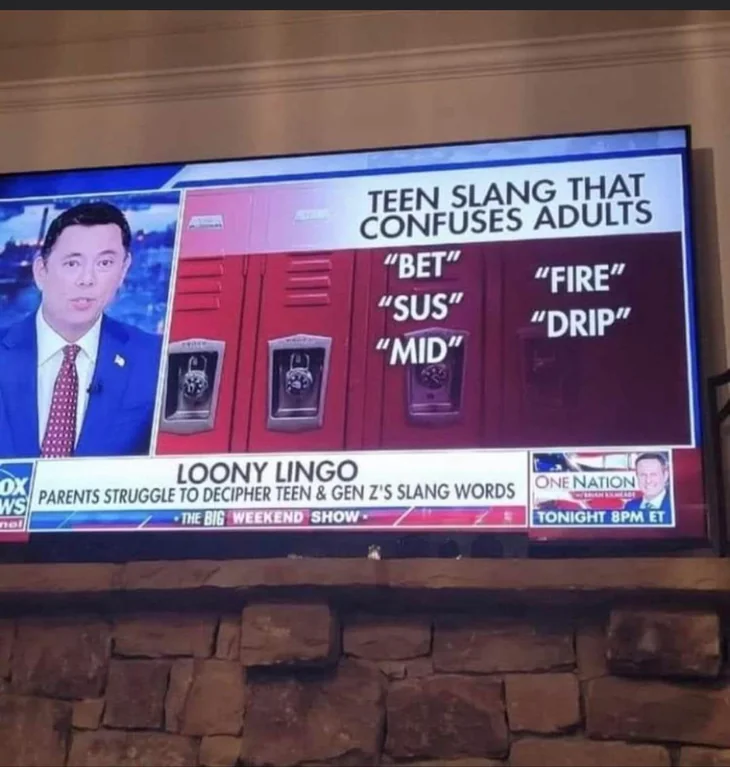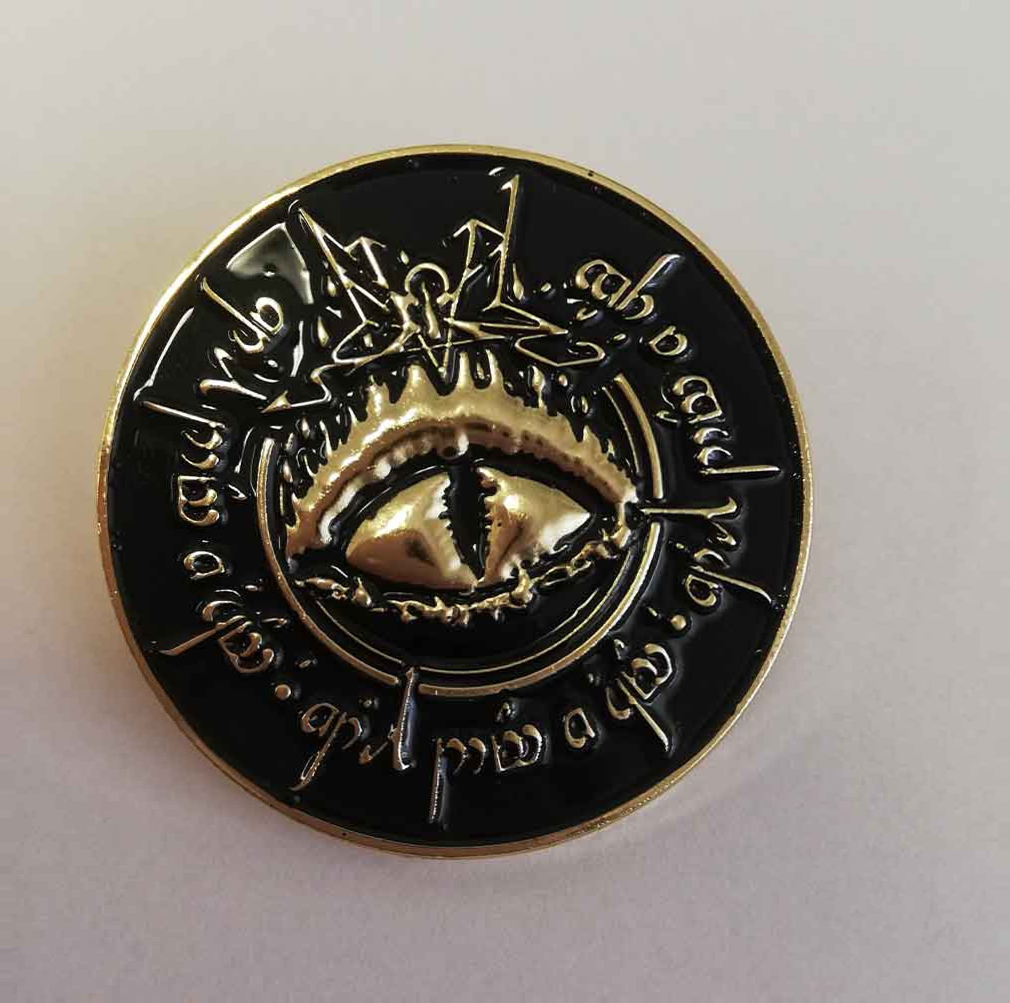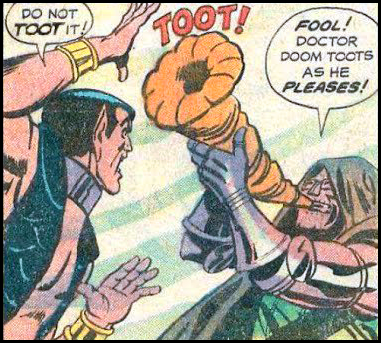It’s been unreasonably hot of late (maximums hovering around 40° for the last three days), which means that I’ve found it rather difficult to sleep. I’ve tried what I often do under such circumstances which is to stay up watching weird, late night TV until I can barely form a coherent thought (La Brea seems interesting, at least when horribly sleep deprived) then crawl into bed in the hopes of passing out, but it never actually works, so I’ve spent much of the last few nights tossing and turning while my brain whirls away like a merry-go-round with a broken speed governor.
(Do merry-go-rounds have speed governors? Is a speed governor even a thing? You can tell I’m not all here can’t you?)
Anyway, as I was writing in mental and physical torment last night my brain spat up a really silly idea, which was to attempt a translation of everyone’s favourite Dwarf song – Diggy Diggy Hole – into Khuzdul, the language of J. R. R. Tolkien’s Dwarves.
What do you mean you don’t know Diggy Diggy Hole?! What have you been doing with your life?! Here’s Wind Rose’s version to get you up to speed.
Anyhoo, translating it isn’t quite as crazy as it seems because we don’t really know a lot about Khuzdul words and grammar – which gives me plenty of scope to just make things up!
So I looked up what scraps of the language we actually have, and threw in the Neo-Khuzdul lyrics of The Bridge of Khazad-dûm from the Lord of the Rings soundtrack which helpfully provides a basic grammar and a number of words found in Diggy Diggy Hole despite being wildly different in tone.
And here it is! The first verse and chorus of Diggy Diggy Hole translated into what we might call Neo-Neo-Khuzdul…
FELEKA TÛM
Gûza mêngalaribarâ!
Mênfelakarâ khul!
Mêntakarâ felak lamâ!
Mênorodalarâ khul!
Mâsalani buzra zar
Mak tabandi bazanar
Gilim samil, zigil, nim
Abilul sanzigil bin!
Mâbala ni buzra
Kûman taranasha mâ
Mâzikada ni aznân
Suruk ni kathalamâ
Paragul kurdumâ
Sanbaragul bishkumâ!
Feleka tamahaldi rûza
Mênorodalarâ gûza!
Khahali Khuzd
Ra khafeleki tûm!
Khafeleki tûm!
Khafeleki tûm!
Khahali Khuzd
Ra khafeleki tûm!
Khafeleki tûm!
Feleka tûm!
Translated back to English…
DIGGING A HALL
Brothers you will rejoice!
Dig with me!
Use our tools and voices!
Sing with me!
Deeper and deeper we go,
No one knows what lies beneath,
Shining gems, silver, gold,
Mithril hidden deep!
We were born underground,
Nourished by stone,
We grew in the dark,
Secure in our mountain stronghold,
Our skin is iron,
Our bones are steel,
Digging makes us free,
Brothers sing with me!
I am a Dwarf,
And I’m digging a hall,
I’m digging a hall,
I’m digging a hall,
I am a Dwarf,
And I’m digging a hall,
I’m digging a hall,
Digging a hall,
And finally for those who care about such things, a line by line gloss…
Gûza mêngalaribarâ
all-brothers you-celebrate-imperative
Brothers you will rejoice!
Mênfelakarâ khul
you-delve-imperative me-with
Dig with me!
Mêntakarâ felak lamâ
you-use-imperative tool voices-our
Use our tools and voices!
Mênorodalarâ khul
you-sing-imperative me-with
Sing with me!
Mâsalani buzra zar
We-descend-are deeps more
We go deeper and deeper
Mak tabandi bazanar
No-one it-know-are below-things
No one know what lies below
Gilim samil, zigil, nim
Shining gems, silver, gold
Shining gems, silver, gold
Abilul sanzigil bin
hidden true-silver beneath
Mithril hidden below
Mâbala ni buzra
we-born-were in deeps
We were born underground
Kûman taranasha mâ
stone it-nourish-did us
Nourished by stone
Mâzikada ni aznân
we-grow-did in darkness
We grew in the dark
Suruk ni kathalamâ
secure in mountain-stronghold-our
Secure in our mountain stronghold
Paragul kurdumâ
iron-of skin-our
Our skin is iron
Sanbaragul bishkumâ
true-iron skeletons-our
Our bones are steel
Feleka tamahaldi rûza
To-dig it-create-does freedom
Digging creates freedom
Mênorodalarâ gûza!
you-sing-imperative all-brothers
All brothers sing!
Khahali Khuzd
me-be-am dwarf
I am a dwarf
Ra khafeleki tûm
and me-dig-am underground-hall
And I’m digging a hall
Khafeleki tûm
me-dig-am underground-hall
I’m digging a hall
Khafeleki tûm
me-dig-am underground-hall
I’m digging a hall
Khahali Khuzd
me-be-am dwarf
I am a dwarf
Ra khafeleki tûm
and me-dig-am underground-hall
And I’m digging a hall
Khafeleki tûm
me-dig-am underground-hall
I’m digging a hall
Feleka tûm
to-dig underground-hall
To dig a hall
So there you go. I’m done for the day. Mênmahaldarâ laramâ! (make your own entertainment)







